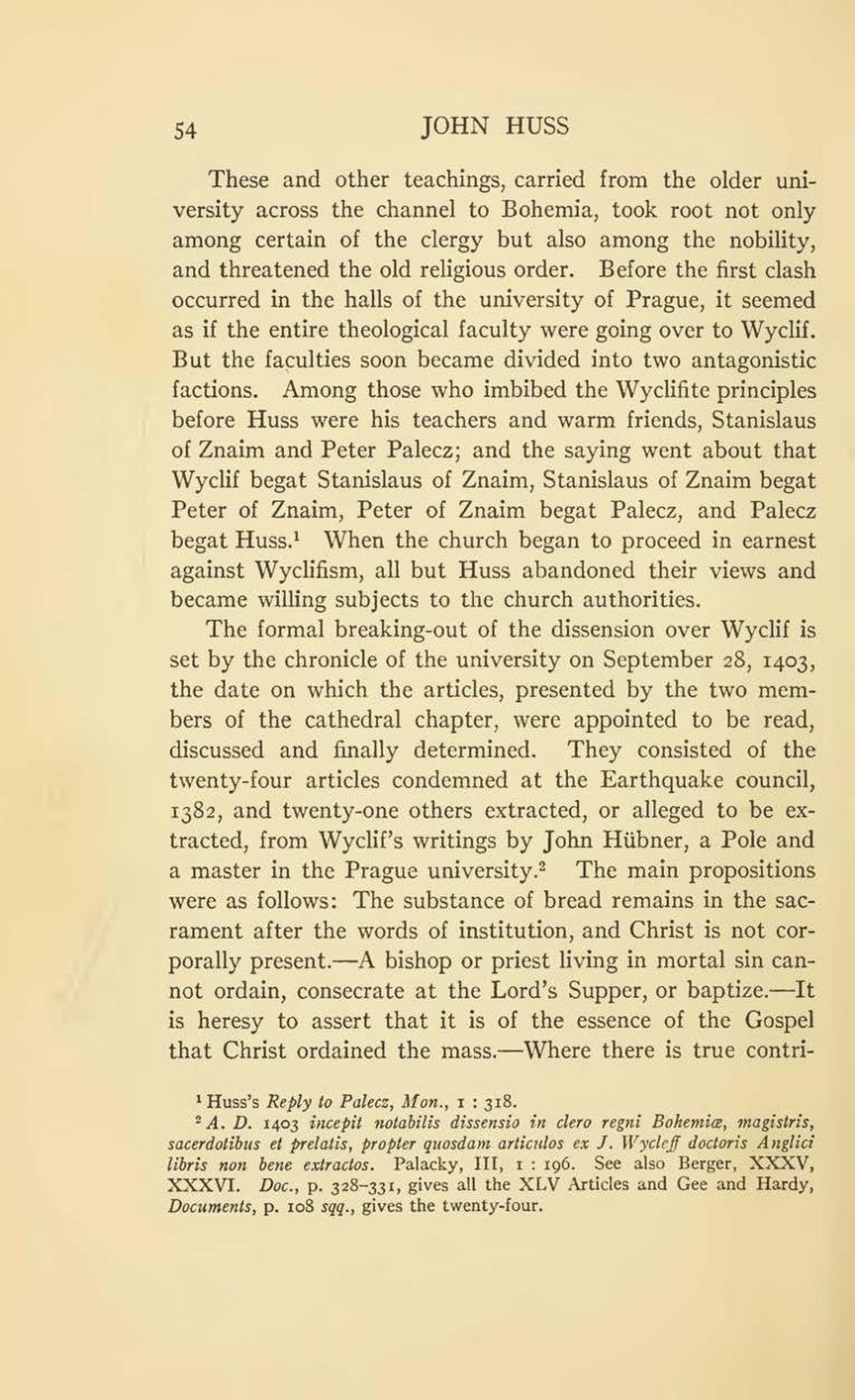These and other teachings, carried from the older university across the channel to Bohemia, took root not only among certain of the clergy but also among the nobility, and threatened the old religious order. Before the first clash occurred in the halls of the university of Prague, it seemed as if the entire theological faculty were going over to Wyclif. But the faculties soon became divided into two antagonistic factions. Among those who imbibed the Wyclifite principles before Huss were his teachers and warm friends, Stanislaus of Znaim and Peter Palecz; and the saying went about that Wyclif begat Stanislaus of Znaim, Stanislaus of Znaim begat Peter of Znaim, Peter of Znaim begat Palecz, and Palecz begat Huss.[1] When the church began to proceed in earnest against Wyclifism, all but Huss abandoned their views and became willing subjects to the church authorities.
The formal breaking-out of the dissension over Wyclif is set by the chronicle of the university on September 28, 1403, the date on which the articles, presented by the two members of the cathedral chapter, were appointed to be read, discussed and finally determined. They consisted of the twenty-four articles condemned at the Earthquake council, 1382, and twenty-one others extracted, or alleged to be extracted, from Wyclif’s writings by John Hübner, a Pole and a master in the Prague university.[2] The main propositions were as follows: The substance of bread remains in the sacrament after the words of institution, and Christ is not corporally present.—A bishop or priest living in mortal sin cannot ordain, consecrate at the Lord’s Supper, or baptize—It is heresy to assert that it is of the essence of the Gospel that Christ ordained the mass.—Where there is true contri-
- ↑ Huss’s Reply to Palecz, Mon., 1: 318.
- ↑ A. D. 1403 incepit notabilis dissensio in clero regni Bokemiæ, magistris, sacerdotibus et prelatis, propter quosdam articulos ex J. Wycleff doctoris Anglici libris non bene extractos. Palacky, III, 1: 196. See also Berger, XXXV, XXXVI. Doc., p. 323–331, gives all the XLV Articles and Gee and Hardy, Documents, p. 108 sqq., gives the twenty-four.
